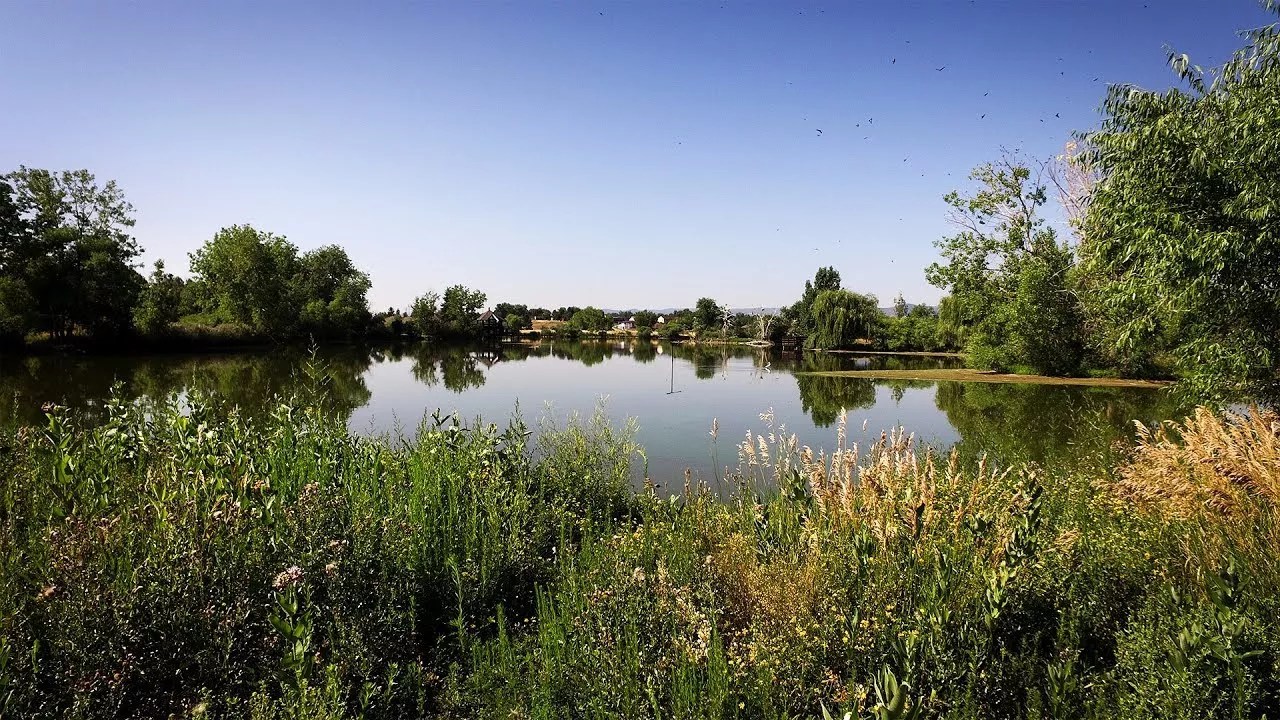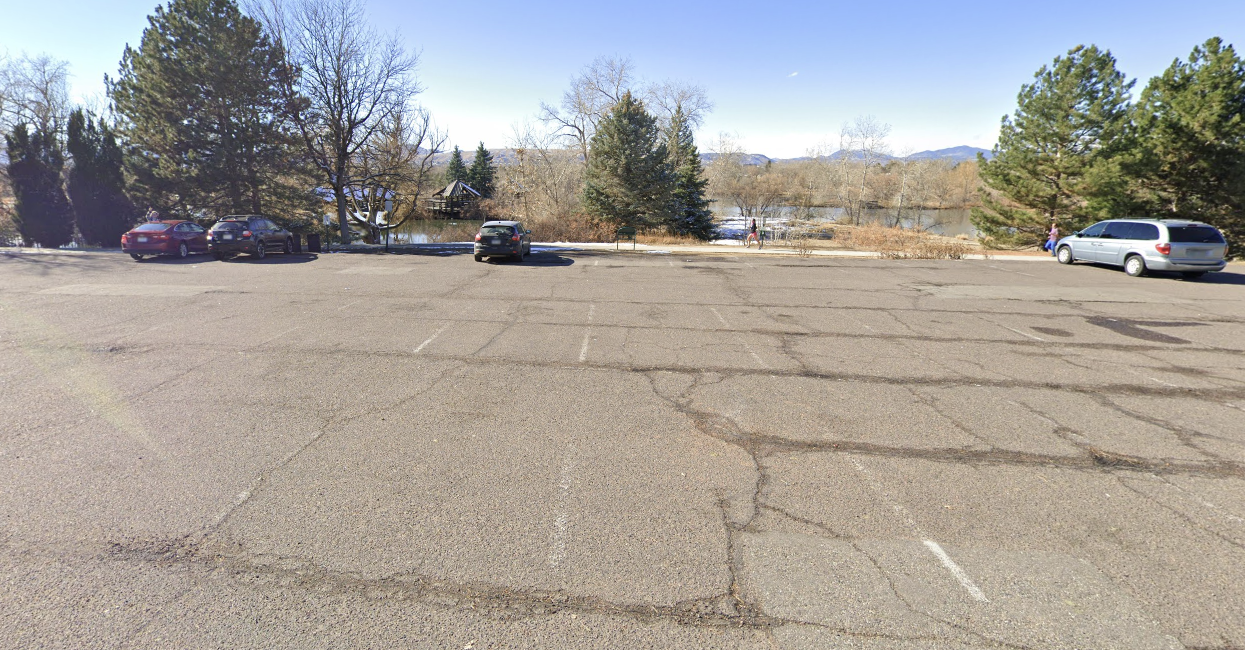
City of Lakewood

Audio By Carbonatix
Described on the Lakewood website as “one of the true jewels of the City of Lakewood park system,” Belmar Park has been a popular refuge for residents who go to the 132-acre park to relax and connect with nature. But now they’re worried that a proposed luxury apartment complex abutting the park could dull the shine of that jewel.
“I would say 95 percent of the people I talk to when I’m walking around or something, they’re passionately against this,” says Barbara Millman, a resident who’s part of Save Belmar Park, which formed last fall to fight the development.
Belmar Park was originally part of an estate owned by May Bonfils, daughter of Frederick Bonfils, who started the Denver Post. After May’s death in 1962, her husband gave some of the property to the Archdiocese of Denver. He donated more land to Lakewood for its government center, a library, the Lakewood Heritage Center and the park.
The Archdiocese eventually sold its land to a private developer, which built the IronGate Executive Plaza, a two-story office building, at 777 South Yarrow Street.
When Adam Paul was mayor of Lakewood, he discussed with city staffers the possibility of buying the property should it become available, recalls Paul, who joined Denver Mayor Mike Johnston’s administration last fall after he was term-limited out of office. “Realizing that there’s a lot of other parts of our city that don’t have a lot of parkland, especially in some of our lower-income areas, it was really an equity thing for me,” he says. “Is that a highest and best use, for us to purchase that – or to go and really look at pursuing more park and open space land in other parts of the city that may not have a huge park already?”
The city went with buying parkland in other areas of the city. And in 2021, Kairoi Residential, a property management company based in Texas with developments in a dozen states including Colorado, purchased the IronGate parcel for $6 million. It’s currently working through a Major Site Plan review with Lakewood; the plan calls for putting about 400 luxury apartments in new, multi-story buildings.
“The proposed development of this property does not involve or include any parkland, and this property was never part of Belmar Park and has always been private property,” according to a Lakewood website on the project. “The zoning on the property has remained the same with the sale of the property, and it allows multi-story buildings such as this proposed development as part of downtown Lakewood.”
Can the Project Be Stopped?
But members of Save Belmark Park think the project goes too far – and comes too close to the park. So they’ve hired attorney Pat Mellen to focus on preserving 69 living trees that would be removed, as well as mitigating the project’s impact on wildlife and creating a buffer between the building and the park.
According to the Lakewood planning department, Kairoi will be required to “plant as many trees on and around the site as reasonable, and the remainder will be charged as a fee that will be used to plant trees in the park and surrounding neighborhoods.” The department says the company is working with an environmental consultant on saving some mature trees and studying the impact on birds.

Citizens are worried that birds in Belmar Park could be impacted.
Heritage Lakewood Facebook
Kairoi has requested permission to begin removing trees as early as this month. Mellen and the residents she represents point to a section of the Lakewood municipal code that specifies “no person shall willfully destroy, rob or disturb the nest, nesting place, burrow, eggs or young of any wild bird or animal anywhere within this city.” They say they suspect Kairoi may be trying to take the trees down during the winter to avoid disturbing nests.
Kairoi did not respond to multiple requests for comment.
Residents are worried about more than the project’s impact on nature; they’re concerned about their own environment. The homeowners’ association for Belmar Commons, a small housing development on Yarrow Street, was the first group to point out potential issues with the proposed development last summer.
Save Belmar Park estimates that the project will create over 2,200 additional car trips a day on Yarrow, a small residential street. Belmar Commons residents are worried that those who don’t want to pay parking fees at the new apartment buildings will take up all available parking on Yarrow.
Tom Dearth, a member of the Belmar Commons HOA, spoke at the January 8 Lakewood City Council meeting, as he had at many earlier meetings.”There are people who have trucks and they have vehicles that they need for their work that they have to park in the street,” he said. “If they can’t park there, they have to park those expensive trucks with all their materials and equipment in other areas of the city. … It’s going to be an absolute behemoth sitting there in this beautiful park.”
Lakewood Bound by Zoning
Wendi Strom, a former Lakewood councilmember who is now the mayor, says that council shares concerns about traffic and parking as well as tree removal, but “is very limited on what we could do.”
Large developments in Lakewood are required to give land to the city for a park or pay a fee so that the city can build a park elsewhere. Near the end of her tenure last year, then-Councilmember Anita Springsteen tried to make a motion to require Kairoi to preserve the 69 living trees, provide extra parking for residents and protect the natural environment; she also wanted to require the developer to put parkland on the property instead of paying a $256,000 per acre fee for each of the 3.3 acres. “In this circumstance, I said that was an abuse of discretion,” Springsteen recalls. “They should have required the parkland dedication and it probably would have solved the whole problem, because it would have been 3.3 acres more of open space.”
Because Springsteen’s resolution hadn’t been properly reviewed, it was not allowed to proceed. Nor was her demand that there be a public hearing.
According to both Paul and Strom, since Kairoi is following the existing zoning rules for the property, no public hearing is required. “If the use was changing, then you’d have to do a rezone, and that would come to the city council and would trigger that public process,” Paul says.
The 777 South Yarrow property is zoned as an urban renewal area, exempt from Lakewood’s controversial growth cap that limited development and will soon sunset since the Colorado Legislature passed a law banning such prohibitions. It has been zoned a Mixed-Use Core Urban District since 2013, when Lakewood overhauled its zoning code.
Paul notes that there are already about 1,400 housing units within 500 feet of the park. While he agrees that large luxury apartments aren’t the best for the area, he says they’re legal.
“The city has land use codes to define what can and cannot be done on each property,” notes the city planning department. “City council can change these, but not for a project that is already underway – because it would be illegal to change the rules to disallow a project.”
But Mellen points out that other ordinances are in place that could apply, including rules for tree replacement, a wildlife protection ordinance and parkland dedication.

The complex would be built in a parking lot at 777 South Yarrow Street.
Google Maps
“In the absence of a transparent process about what is going on in the plan negotiations between the developer and the city, it is hard to understand or rationalize why these issues that Save Belmar Park is raising aren’t being addressed using the ordinances that are already on the books,” Mellen says.
A lack of transparency regarding conversations between city staff and Kairoi make it unclear whether all Lakewood laws are being applied to the project, residents complain.
“I’m just urging you to please step back and try to grab yourselves to think about what can we do at this time to protect this area and really work with the developer to try to get mitigation associated with this development, because an apartment building is not a unique resource,” resident Carol McCoy said at the January 8 meeting. “What is unique is Belmar Park.”
The Public Speaks Up
Lakewood City Council is considering amending its laws to account for projects like this in the future; it’s working on updating its comprehensive plan and will hold public hearings on that update. But while that process will take time, Strom says there are some things that the city should do in the meantime.
“We’ve got to improve our cash-in-lieu program,” she says. “Right now, it’s very, very complicated, and what’s been brought up is one could very much argue we’re not getting enough money for the land that has been given up.”
She also wants the city to look into better public notification of large projects so that residents can voice concerns earlier. Council may look into requiring public meetings for large developments or improving zoning around parks, as well, she notes.
Although no public meeting was required, Kairoi and three members of the Belmar Commons HOA joined Lakewood’s Planning and Community Resources departments for a facilitation on December 6. That did not satisfy the opponents, who are upset that the facilitation involved such a small group. Millman says that no one from Save Belmar Park was contacted about the meeting, for example.
“The facilitated meeting was designed to engage the immediate neighbors of the park to ensure a focused and productive discussion,” the city planning department responds through a spokesperson. “Belmar Commons Homeowners Association was invited because of its proximity to the park to speak for the residents that will be most directly impacted in the neighborhood, which is a common approach in planning to ensure the neighbors closest to a new development can outline their concerns about impacts.”
Lakewood City Council held an executive session on January 22 to discuss the legal intricacies of the situation and see what sort of options it might have.
“One of the concerns about having the executive session is giving the community hope,” Strom says. “We cannot deviate from the law unless we are accepting getting sued. So I would say that the bigger reason for the executive session is not to deviate from the law, but to clearly understand what the liability is, what the law is and where we might have influence that we can try to make this project better with the space that it’s in and the community that it’s around.”
But according to Mellen, there are still plenty of avenues that could make the development more compatible with the park.
“Just because all of the traditional legal levers that council can try to use are really hamstrung by the zoning on this property doesn’t mean it’s hopeless,” she says. “It just means it’s going to require a creative solution, because I don’t think the developer wins the long game by just jamming that building in there.”
This story has been updated to clarify Lakewood’s consideration of buying the property.